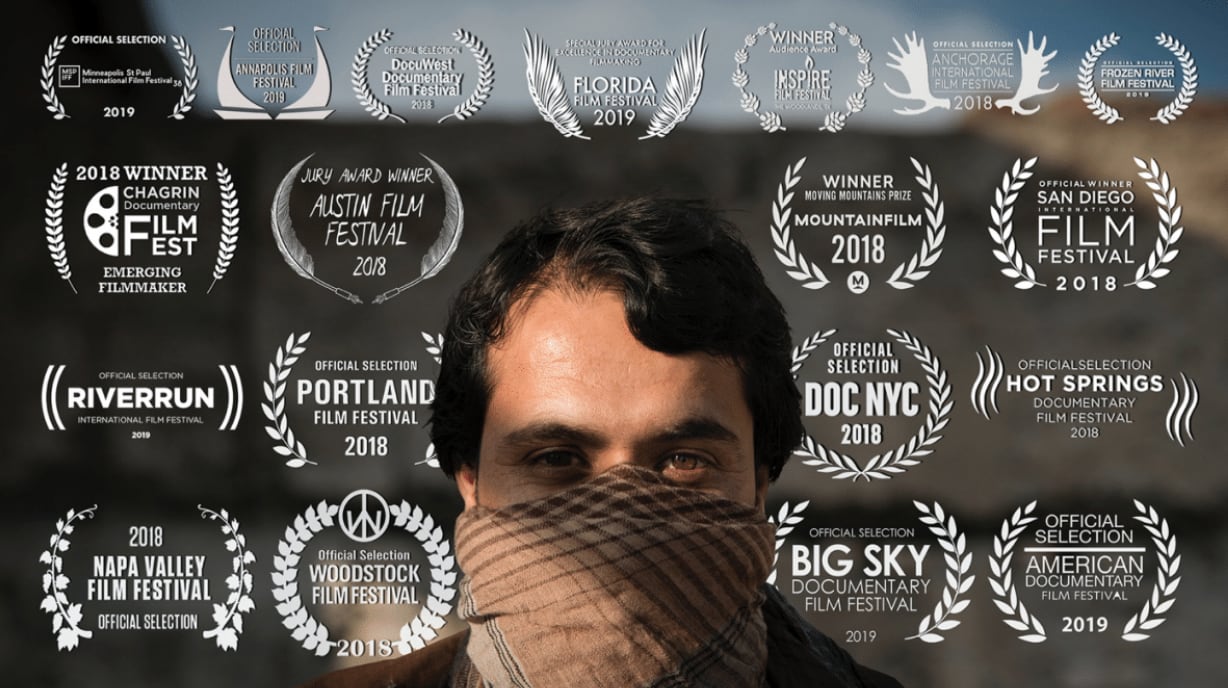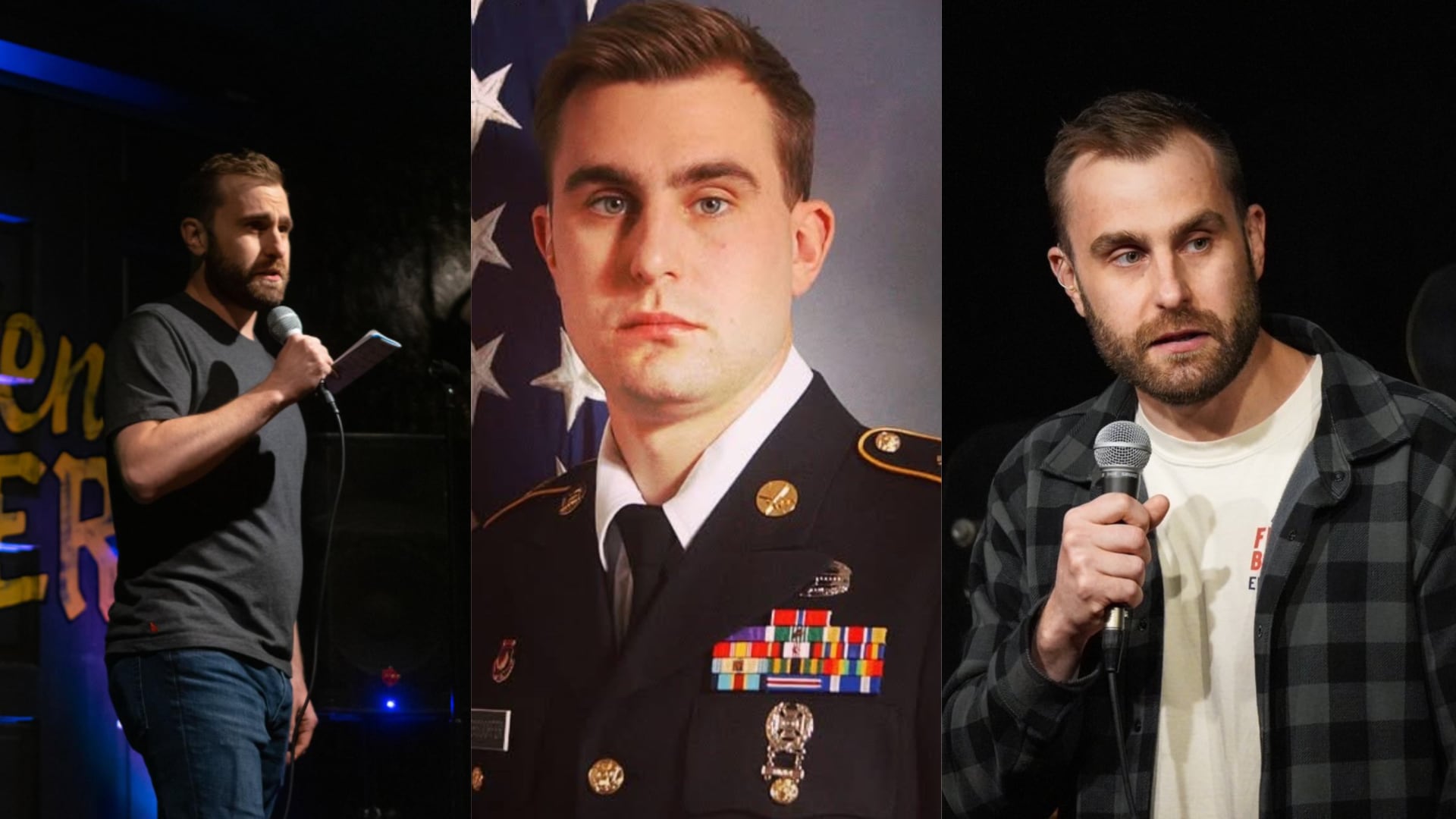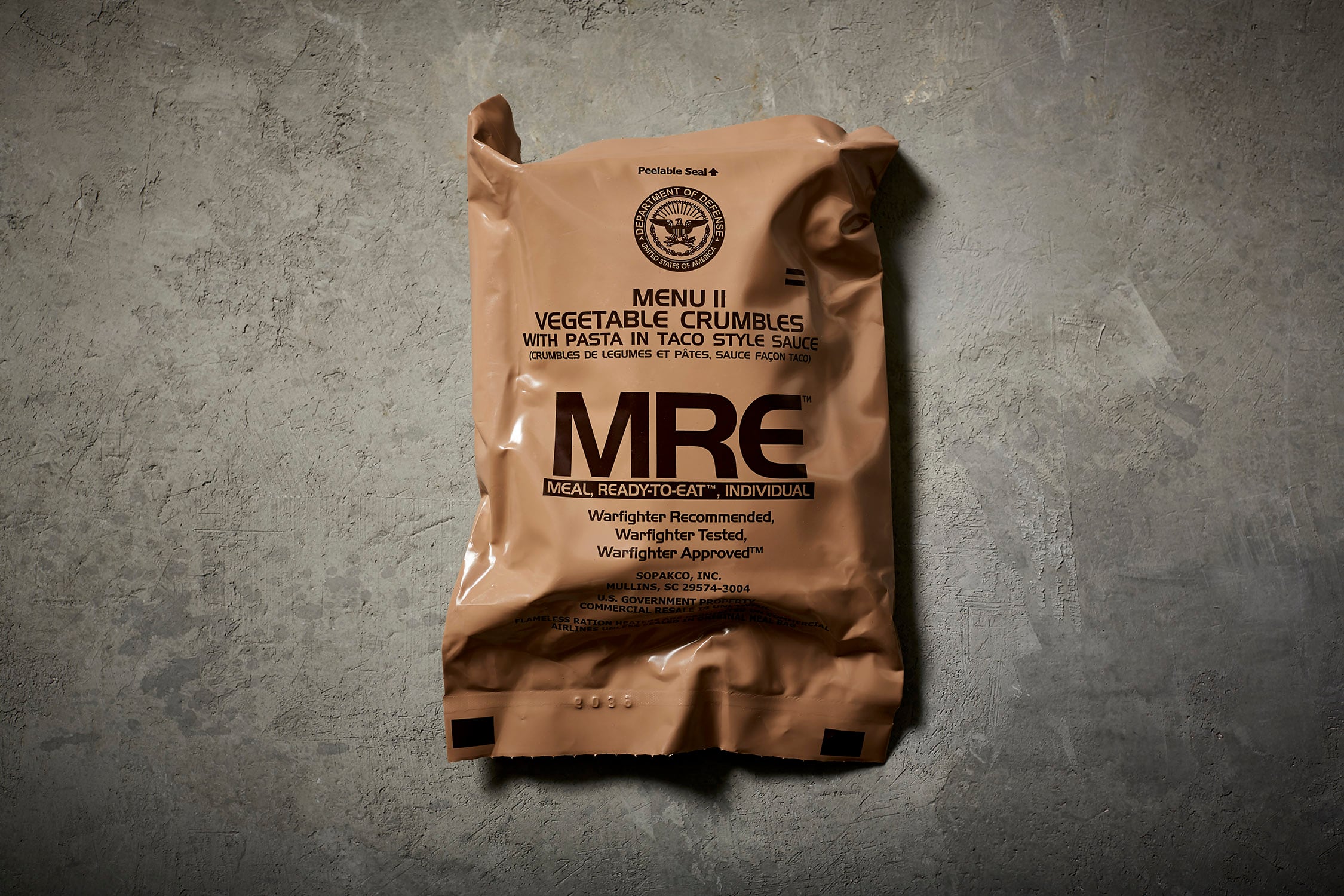The stories have been widely shared, each just as bewildering as the next. Strikingly similar headlines touch on themes of abandonment, panic, hopelessness.
Interpreters saved lives of American service members only to be left behind.
Interpreters who helped Americans now fear for their lives in Taliban-controlled Kabul.
Each account strikes a chord with a note that carries only until it’s muffled by a thunderous chorus in Washington that pivots hour-by-hour from one outrage to the next, leaving in its wake thousands of interpreters who were once promised an opportunity at a better life, only to find themselves at the mercy of barbarism.
One such story was undertaken by filmmakers, Sofian Khan and Andres Caballero, who sought to magnify the muted voices of their subjects by way of a 2018 Emmy-nominated documentary aptly titled The Interpreters.
Now, in the aftermath of the Taliban trouncing the Afghan army province-by-province, culminating with the collapse of Kabul, the dire situation encountered by interpreters like those featured in the film — Afghans Malik and Mujtaba, and a chain-smoking Iraqi Khalid Awda (codenamed “Phillip Morris”) — is once more a topic of conversation for those outside of the niche community that has kept it afloat. But for how long?
As thousands continue a frantic struggle to escape from underneath the oppressive heel of the Taliban noe without assistance from personnel who once promised it, Military Times connected with Khan to discuss the corresponding resurgence of his film, its subject matter, and the ongoing immigration frustrations stemming from an interminable road strewn with bureaucratic obstacles.
The Interpreters (59 min) is currently available to rent or buy on Amazon Prime. Watch the trailer below.
First, how did you and your co-producer Andreas come together to do this project?
I knew Andres through connections at Columbia Journalism School, where I’m now I’m an adjunct professor. We initially worked on a project about South American sheep herders who came to the U.S. on a special visa, so it seems like he and I gravitate toward films about immigration situations no one’s ever heard of.
Eventually, we were looking for the next project. Andres had been doing a Military Voices podcast for NPR and heard about these incredible friendships between veterans and interpreters. It just seemed like an interesting story and was still an ongoing, open-ended thing, so that put us on track.
You both went to Afghanistan for a significant portion of this film’s undertaking. Were there points where you and Andres were ever in danger?
There were occasional firefights near the base where one of our interpreters, Malik, was working. We were leaving the base after meeting him one day, and after going through the U.S. and Afghan security points there was a drive-by assault. That was thankfully the only time we heard fire that close to us.
On another occasion there was a magnetic bomb that exploded near one of the interpreter’s houses while we were interviewing him in different location, which obviously caused concern whether something happened to his family. Fortunately, everyone was okay.
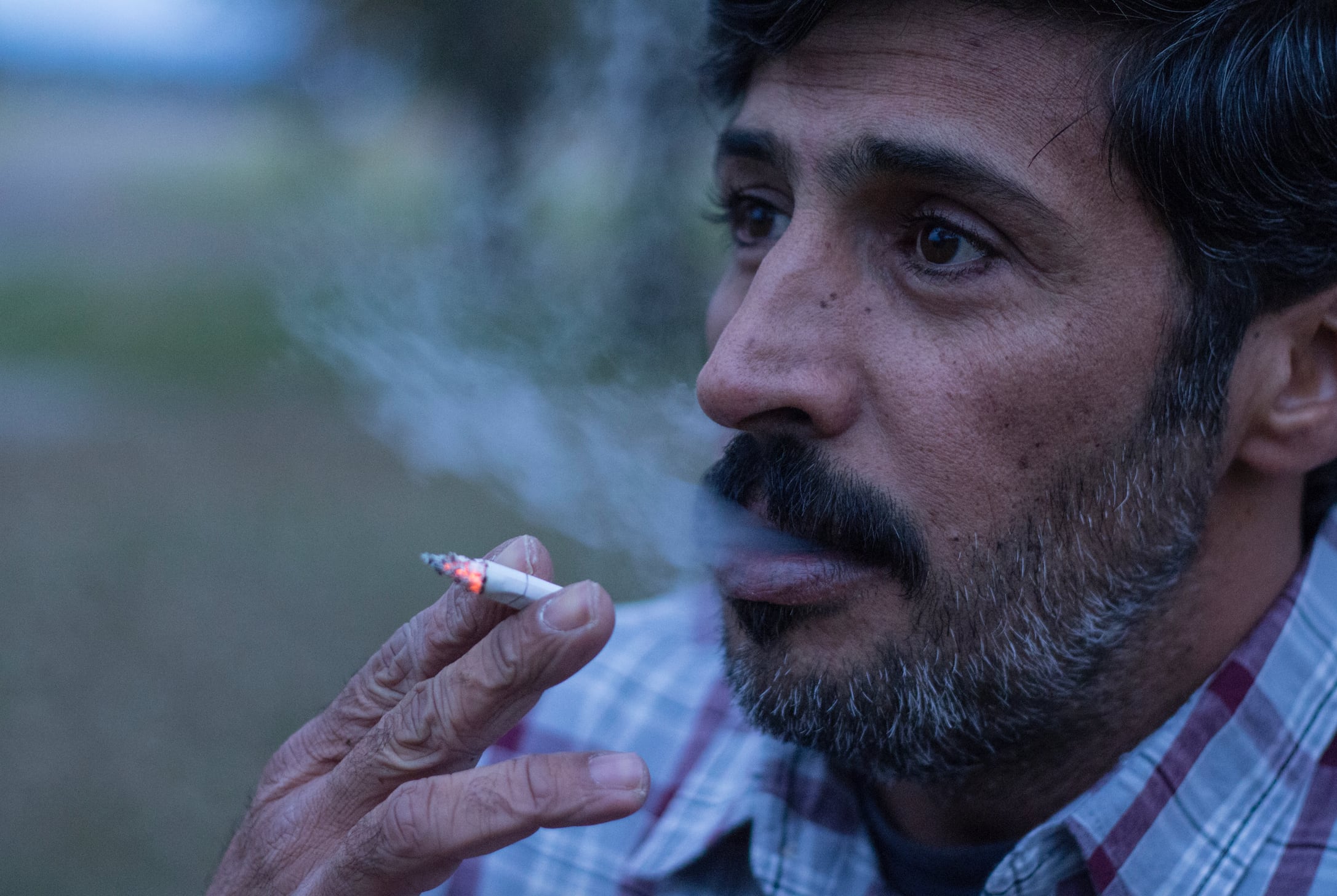
Things like that were happening, but our concern was more that we would simply find ourselves in the wrong place at the wrong time.
In the aftermath of Kabul falling to the Taliban, innumerable Afghans who once helped U.S. forces are now living in constant fear of retaliation. You were in Kabul while the U.S. still maintained a significant presence. What was that threat like for your subjects at the time?
We were definitely concerned about the safety of our subjects. If anything, we had to just be incredibly mindful that the interpreters were in a situation where they were being watched and threatened. So we did our best to blend in. Fortunately, my family traces its heritage to Afghanistan before they moved to India and then Pakistan, so I can almost pass as a local. And my producing partner Andres ... a lot of people thought he was Afghan, so we just tried to play and dress the part.
One of our subjects in particular, Malik, was very concerned about meeting us. He didn’t know what to expect when we showed up. We were on the phone with him as he was driving back and forth near the corner where we were supposed to meet. We had to describe ourselves in great detail — type of clothing, fingerless gloves — before he finally pulls up and goes, “Oh, you guys look like Afghans. Get in.”
You just try to not draw attention because they’ve got a target on their back.
After the film’s release, what responses did you get from the casual viewer who didn’t necessarily know this was even a problem?
There were typically two types of responses. First, people were generally shocked about the difficulty of getting interpreters out of Afghanistan, but then there was the secondary shock of why this is the case. Of course, this topic has become news of late, but it’s been this sort of slow burn over many years that’s really dropped in and out of the news cycle.
I received plenty of emails early on from people asking things like, “Why are people stuck in these five-year response times and then still not getting in?” And I still don’t have an answer for that. It’s hard to understand, especially right now when we’re reading about so many cases of veterans pulling their hair out trying to get interpreters evacuated and wondering why there are so many obstacles to doing so.
It’s just one of those things that is so obscure and so hard to define exactly where the pressure point is.
What about the reactions of those in position to make a difference in the plight of interpreters who aided the U.S.?
It’s very strange, the process of refilling visas and jumping through administrative hoops of the Special Immigrant Visa programs. On the surface there’s been bipartisan support, so you’re not really raging against the machine. Everyone sounds like they’re on board, and yet the system doesn’t really work and there’s this backlog of interpreters sitting there as the Taliban takes over Kabul.
A huge part of that backlog is that this process has, historically, simply taken too long. Who’s pumping the brakes? The visas have been authorized. They’re sitting there, but they’re just not being given out. It’s a very frustrating situation because you don’t really know where that hang up is.
We used to blame a lot of it on the review process — the file going through FBI, Homeland Security, the NSA, or whichever three-letter organization had their hands on it. It would get signed off, but months would go by and then the window would reset. We heard that play out again and again from organizations that were trying to explain why there might be these hang ups.
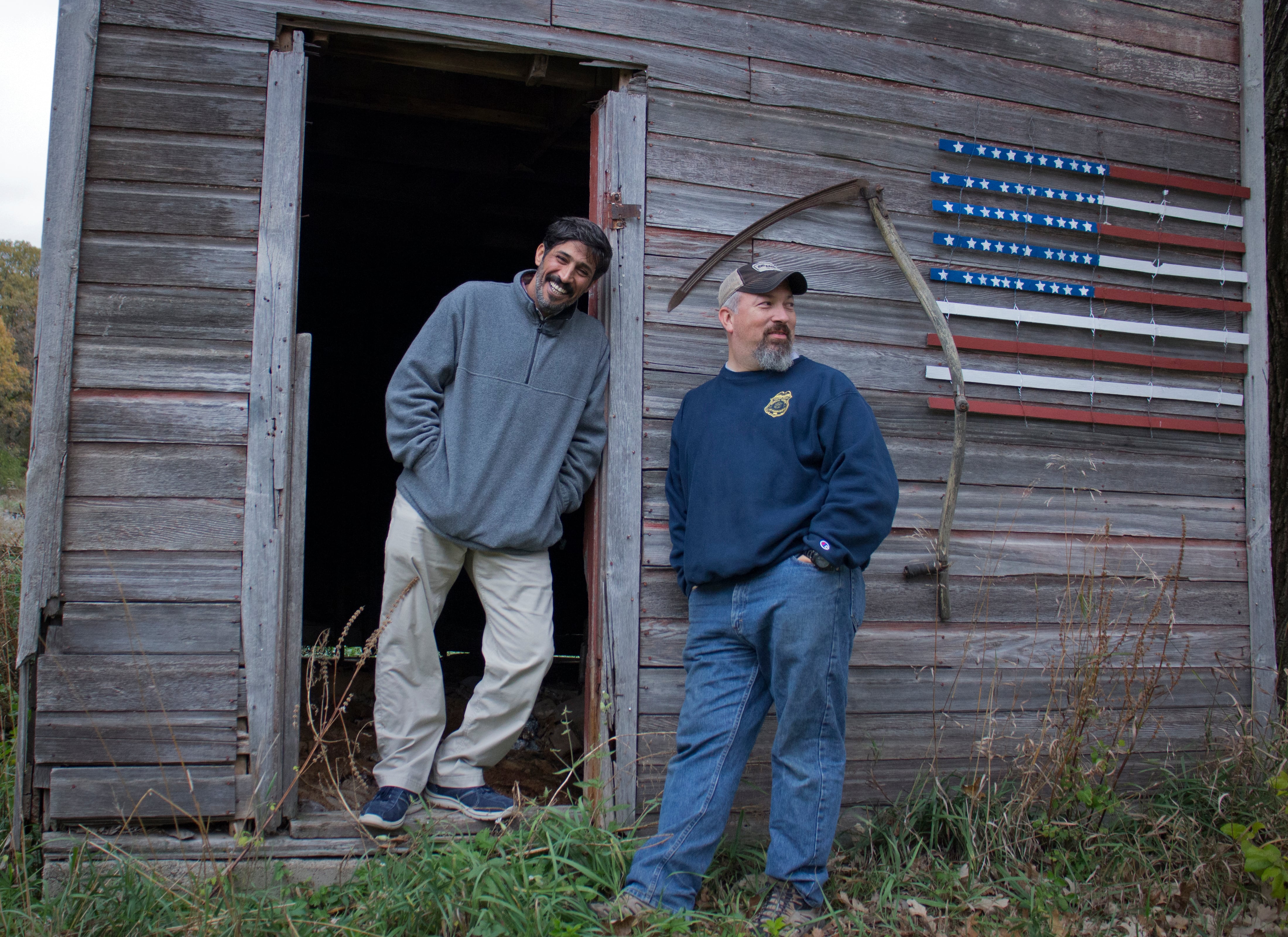
In the film, Malik, Phillip and Mujtaba experience better outcomes than scores of others who have been subjected to backlog issues and now Taliban control. Have you managed to stay apprised of the progress of those you worked with?
Andres is better about that, but we’ve definitely stayed in touch. Andres and Malik both live in L.A. now and Mujtaba lives in Rochester [New York]. I haven’t talked to Mujtaba in a while, but the last time he checked in he was doing well. He had a good job and his son has become a really good student.
That’s generally been the theme with the other interpreters we’ve been in touch with as well. Those who got the visas are doing really well. They’re hard working, smart guys, and a lot of them have quite a bit of education under their belt.
Aside from monitoring their progress, what lasting impressions were made by the interpreters you worked alongside?
The journalist George Packer said something to the effect that some of [the interpreters] believed in our mission more than we did. And that’s because it’s their country and there’s so much at stake. Right now, we’re seeing what really was and is at stake. The Taliban was just knocking on the door and waiting, ready for this very scenario.
We’ve asked these interpreters the same questions time and time again: Why did you join up? What did you hope for? And we just keep getting sincere responses — the Afghans and Iraqis are very sincere people — about being able to make a positive change and see their country come out from under this cloud of authoritarian rule. It’s just incredibly humbling.
I’m glad for the interpreters who made it out, but I can’t imagine being in their shoes now, a time when your extended family, your parents ... they just don’t know what the future holds for them in Afghanistan. It’s always bittersweet when you’re leaving your home, but I can’t imagine what that’s like.
RELATED
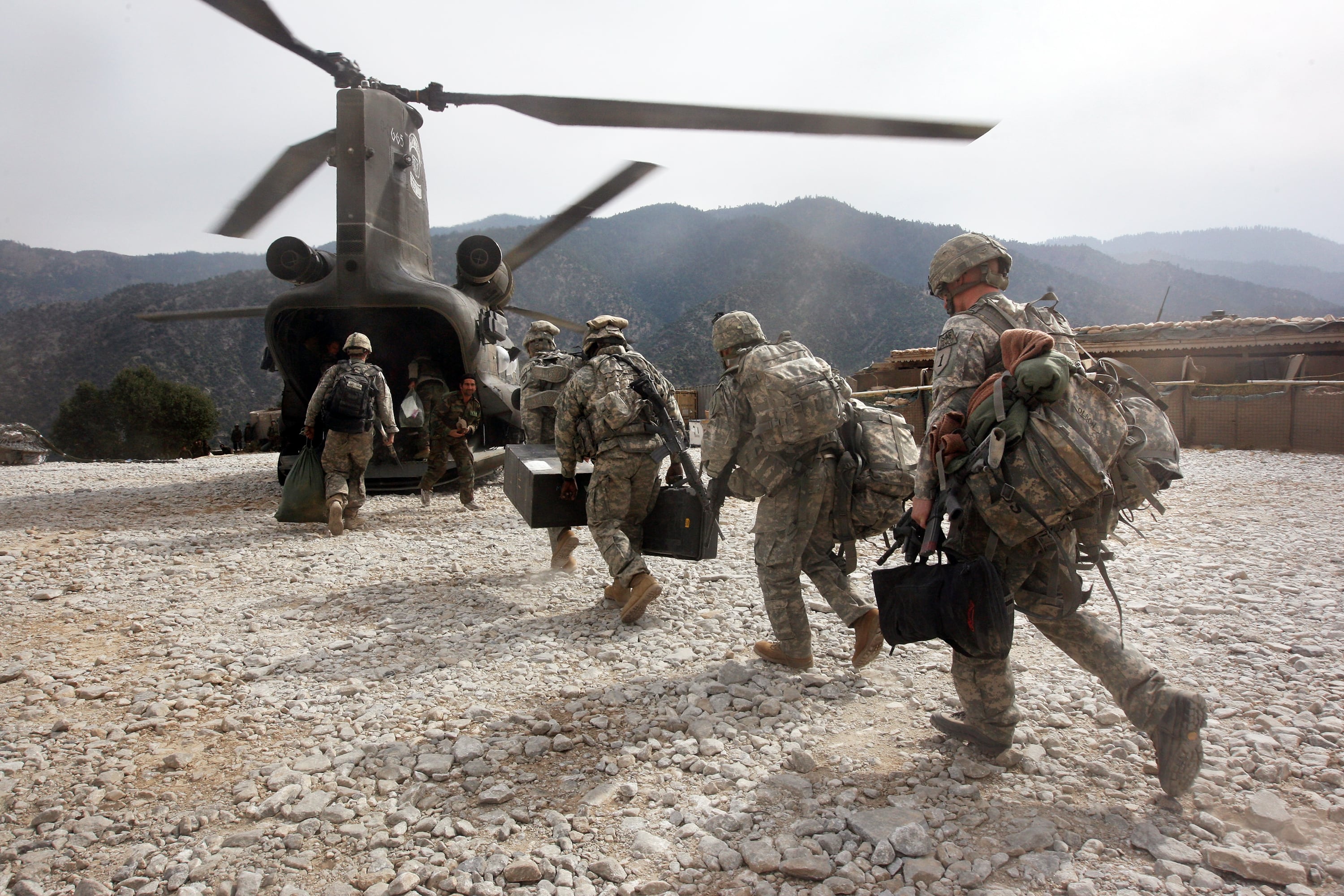
Has the hope they continue to exhibit, when juxtaposed with tragic events over the last few weeks, prompted consideration to make a follow up to The Interpreters?
Definitely. It might be the end of the chapter of the U.S. presence in Afghanistan, but it’s certainly not the end of the story for Afghans. We may add something to the end of the film that weaves that in.
In the near term, we’re trying to do screenings with different organizations that could inspire fundraising opportunities. We’re also sitting on all this other footage, so we may be able to do an extended director’s cut and release it on whatever platforms will take it.
If you manage to re-release the film, what would you hope you could accomplish in terms of shaking up the administrative logjam?
With the film, we were just trying to do what we could to get it out to people to expose the flaws in that process. We had a good initial broadcast in 2018, but after that the film wasn’t viewed all that much. Now we’re talking about doing a rebroadcast because of what’s going on, but I wish we’d been able to sustain some exposure on it from then until now.
I’ve been racking my brain about the most useful way for us to use this. It would be depressing if it was just the film commenting on this really unfortunate chapter of our history without trying to do something more tangible than that.
J.D. Simkins is the executive editor of Military Times and Defense News, and a Marine Corps veteran of the Iraq War.
Tags:
interpreters afghanistaninterpreters iraqinterpreters talibaninterpreters documentaryinterpreters special visainterpreter militaryinterpreters kabulafghanistan documentarykabul evacuationIn Other News





